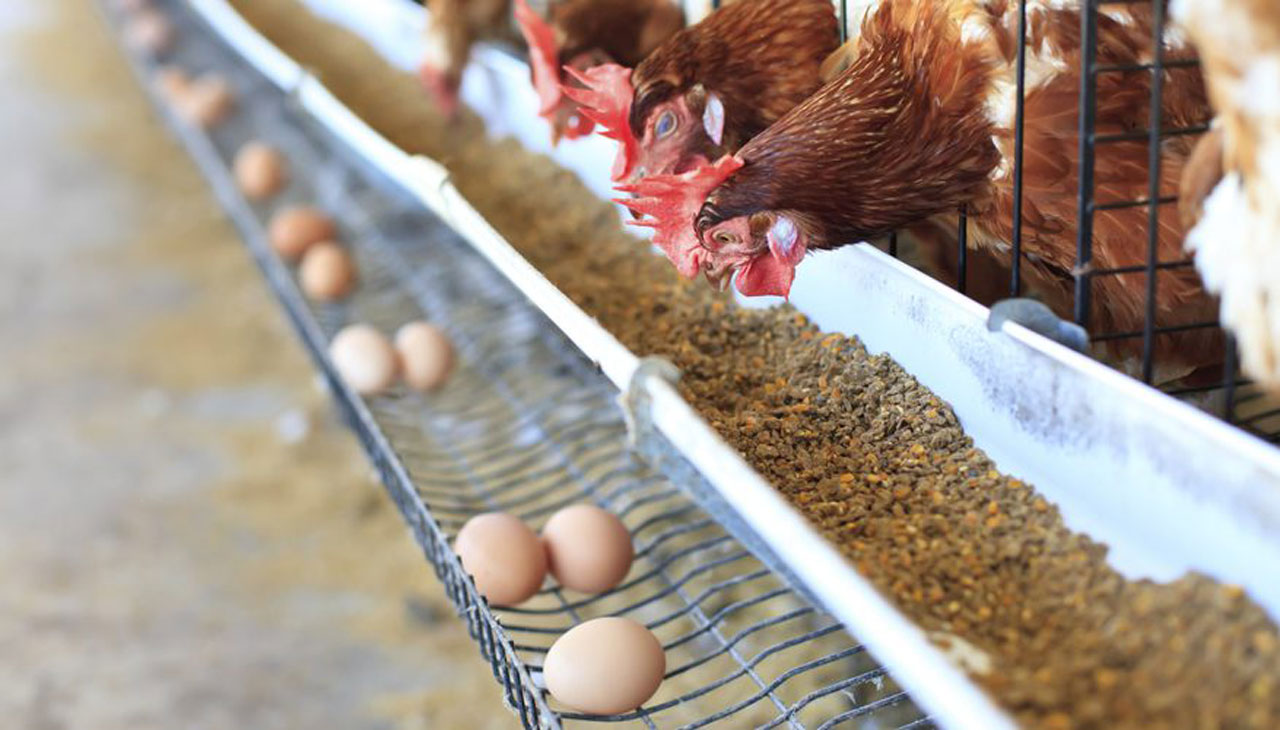 Nigeria may soon rely solely on importation of eggs and other poultry products to breach the growing demand gap among the populace. This is as a result many farms closing down owing to the escalating cost of production.
Nigeria may soon rely solely on importation of eggs and other poultry products to breach the growing demand gap among the populace. This is as a result many farms closing down owing to the escalating cost of production.
According to the Poultry Association of Nigeria (PAN), more than 50 per cent of poultry farms shut down in 2023, and more are getting set to follow suit, majorly due to challenges being faced by the farmers.
In the last few months, the poultry industry has been struggling with rising cost of production driven by the increasing price of maize – the main raw material for poultry feed. The twin policy of fuel subsidy removal and unification of exchange rate has worsened the situation.
This led to hydra-headed challenges – high cost of transportation, indiscriminate increase in prices of feeds, high cost of fuel, increasing cost of raw materials and high electricity tariff among others.
While many of the farmers thought increasing the price of eggs and other poultry products will solve the problem, at least to make a little profit and still stay in business, they were wrong as the economic reality has gone beyond their projection forcing many farms to close shop.
Due to these challenges, egg, considered as the most affordable source of protein and the cheapest, has now gone beyond the reach of the masses, as the price has increased with over 200 per cent. A create of eggs sold for between N2,000 and N2,200 in June 2023, which rose to N3,500 in February this year, is currently sold between N5,500 and N6,000, while a piece of egg rose from N100 in February to between N250 and N300 now.
Just few weeks ago, PAN warned that if urgent steps are not taken to support poultry farmers, prices of eggs may increase to N10, 000 per crate.
The Secretary of PAN, FCT Chapter, who raised this alarm, said the Federal Government must as a matter of urgency declare a state of emergency on egg production, given the serious decline in protein intake, saying Nigerians cannot afford to depend on the importation of eggs.
He said: “If we should go by the proportional increase in the prices of these factors mentioned earlier, we will be buying eggs at N10,000 per create, but because we wanted to be compassionate, coupled with the importance of eggs for health, we left the price at the current price of N5,500.
“To the best of my knowledge, the last time we received grains intervention from the government was three years ago, other interventions by the government to cushion the high prices of food are only read on the pages of the newspaper.”
He lamented that the government is not paying the required attention to the poultry subsector as it has been neglected over time, saying business owners have been operating on their own volition and hoped that the industry does not crash.
The Chairman, Lagos PAN, Mr. Mojeed Iyiola, also said the industry is struggling with rising production costs driven by the increasing prices of maize, a crucial ingredient in poultry feed.
“The price of a crate of egg keeps getting expensive because of the high cost of raw materials. Despite all the government’s support and the open window for importation of maize, the prices of feeds are not even going down at all.
“This is because other raw materials for the formulation of bird feeds are not being subsidised at all. Although maize takes between 60 and 65 per cent of feed production, other materials are on the high side. We still pay high prices for materials like soya, methylene, lysine and premix. So, the intervention of government has not even reflected on the price of poultry product.”
A poultry farmer based in Lagos, Tolulope Dramola, who is the Founder, Menitos Farms, told The Guardian that the misfortune of the industry might worsen, noting that she was forced to stop egg production completely, as it is no longer sustainable.
While noting that she is currently focusing on breeding of birds for meat, Daramola lamented that: “From cost of day-old-chicks, to cost of feeds, to incessant electricity grid collapse, it has been stubbornness keeping us going.
“During that power grid failure days ago, we lost about 30kg of birds, despite running on fuel. Fuel can’t freeze the stock, it just keeps it cold and most customers want it frozen so that it can withstand transportation interval. So, the lingering challenges of breeding the bird are always worsen by power problem in the country, which has resulted to huge financial losses.”






